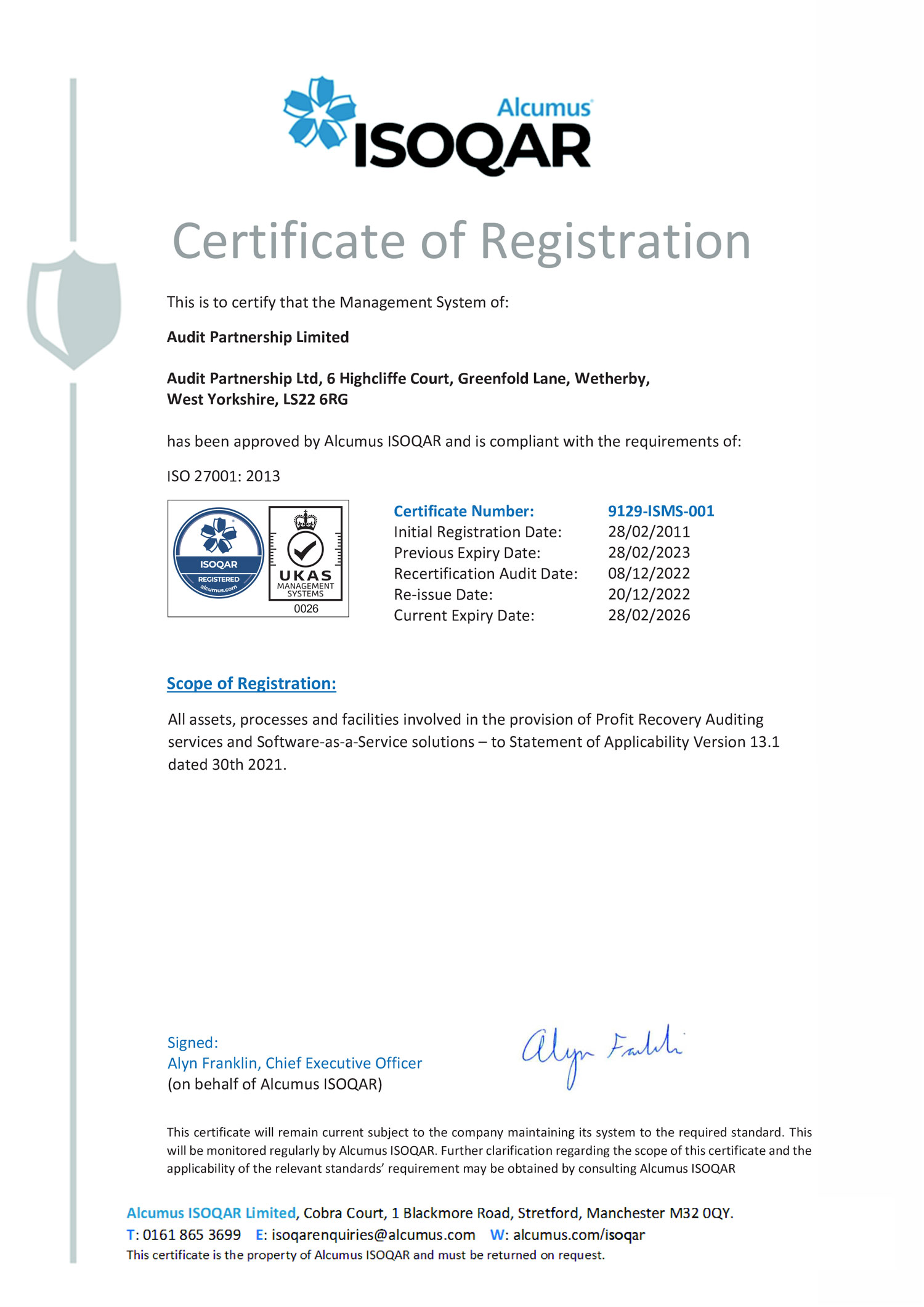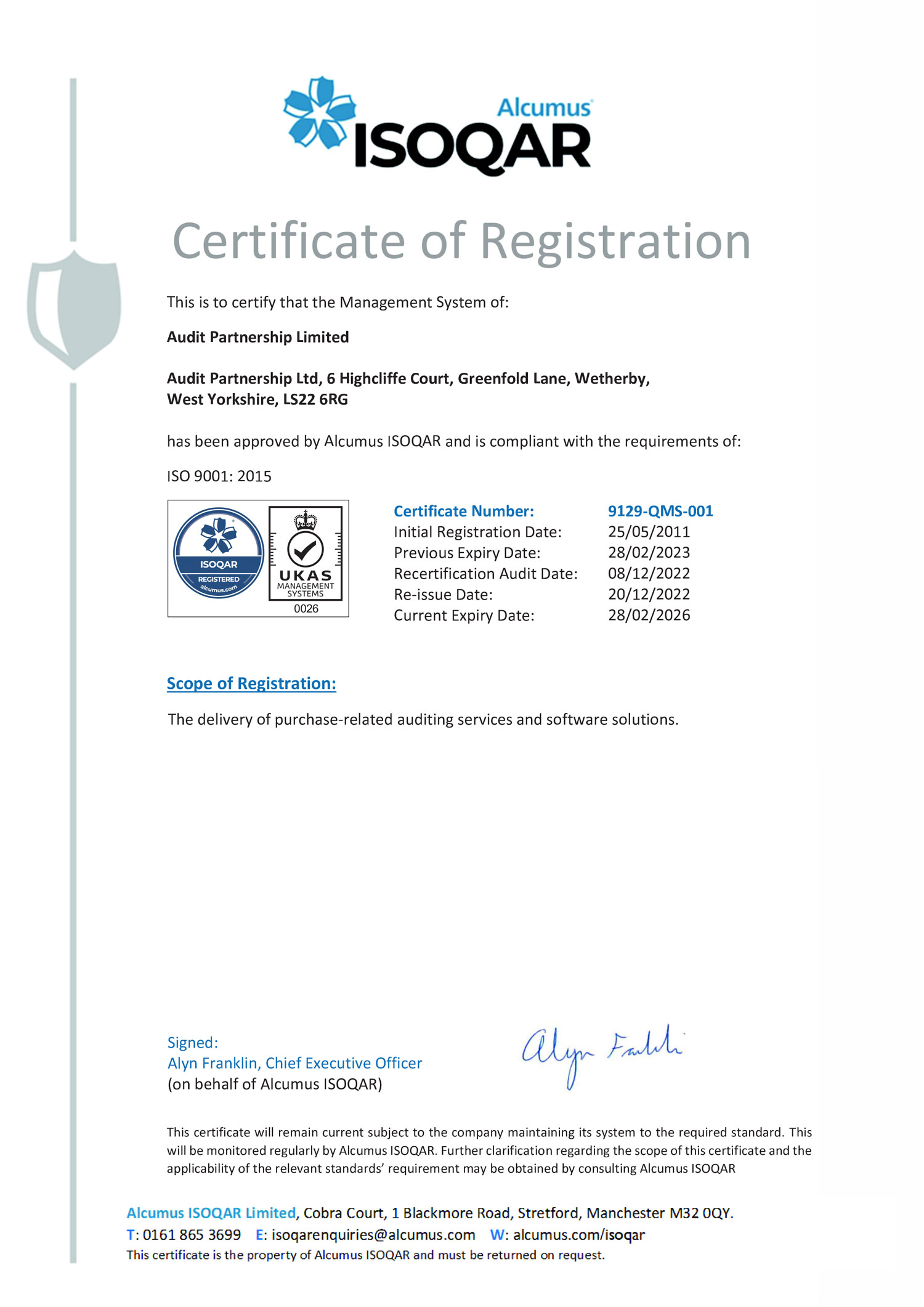
APL Best Practice Guide – Robust Commercial Agreements
Commercial Agreement, also known as Contract Compliance, or Supplier Funding audits, provide a wealth of opportunities for spend recovery and process improvements for APL’s clients, across all industry sectors.
We conduct detailed root cause analysis based on audit outputs specific to each client to really ensure the review delivers against the goals and strategies of the individual client organisation. However, some causes of error do crop up time and time again.
To help both category and commercial managers on both sides of the customer / supplier relationship, we have compiled this Best Practice Guide for avoiding the most common mistakes we identify during a recovery audit, to help these be prevented by in house contract management teams:
- Rebates – In particular, long term agreements and accruals can be complex to calculate and difficult to capture retrospectively. We recommend the language on how bonuses are calculated is clear and unambiguous for future reference, and tracking and communicating progress, including reference to any applicable bonus tiers, on a regular basis (e.g. monthly) to avoid incorrectly calculated or missed billing.
- Top Tip: Most commercial managers would be shocked at the number of “spreadsheet errors” identified by recovery audit firms. Even if you don’t have the time to fully check the calculations, quickly click into the cell calculating any totals, and ensure there are no simple, but potentially costly, mistakes. ‘Sums’ not totalling the entire column, or an incorrectly typed rebate percentage, can result in significant errors, which can easily be avoided.
- Lump Sums – Lump sums are one of the simplest claim types we identify at APL; we commonly find that lump sums due to be invoiced at certain points over the course of a contract are missed. The easiest way to avoid this is to set reminders for all monthly, quarterly, half year and annual sums which are due.
- Top Tip: Our software runs hundreds of checks, and we have teams of contract experts to identify even the most obscure and complex errors. Lump Sums however, are a type of “quick win” claim in recovery audit, as they are so easy to identify, validate, and agree the recovery. Why not try a simple search within your emails for the phrase “raise the (or “raise an”) invoice” so you can periodically reconcile agreements in-house? You might be surprised at what you find!
- Accessible Agreement Storage – Not all commercial agreements are part of annual or contractual terms; more commonly we find ad hoc agreements relating to specific events within emails or statements of work. Ideally these agreements should be stored centrally, so they can be easily managed, reviewed, and accessed by the organisation in the event of personnel changes. If this is something you don’t currently have within your organisation, feel free to reach out to us at APL to discuss some of the software solutions which might help with this requirement.
- Refer back to the contract / overarching terms – Someone simply forgetting to apply some aspect of a trading agreement, whether it be a prompt payment discount, or annual incentive, is one of the main reasons recovery audit firms identify past errors. A simple check back against the overarching business plan or contract on a periodic basis, e.g. every quarter, will keep the details fresh in your mind, so even if something was forgotten initially, it is not too long before it is picked up again.
- Agreement language – Ambiguous or excessively complex agreement language is a key factor in income being lost, as changes in account management personnel results in the intention of the original agreement being somewhat lost in translation. Including details such as calculation methods, exclusions, exact date periods, etc., ensures that all involved parties are clear of what is, and is not covered by the agreement. We also recommend that any ways of working which are understood as part of the agreement in practice, but not necessarily in line with the written agreement, are also documented, to avoid any possible misunderstandings.
For more tools and techniques to keep your customer / supplier agreements in good shape, why not follow APL on LinkedIn to keep up to date on our blogs and best practice guides, or if you would like to chat to a member of the team about how your organisation can benefit from our services, drop us a line at [email protected]













